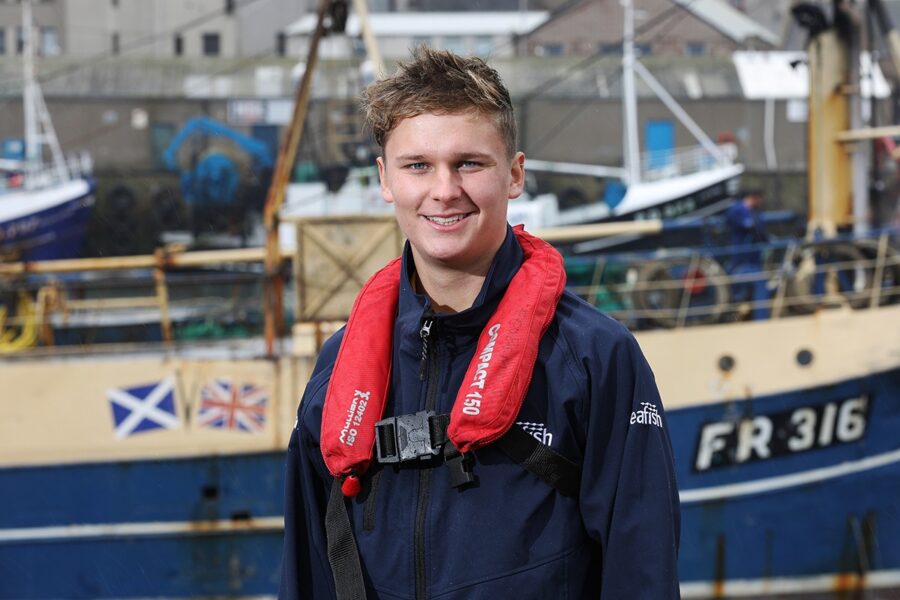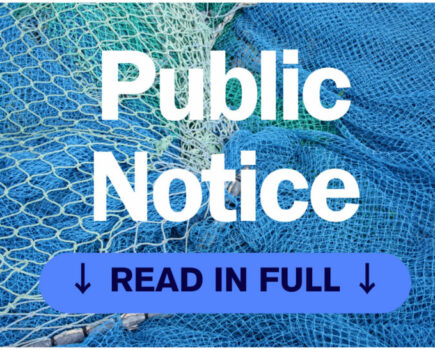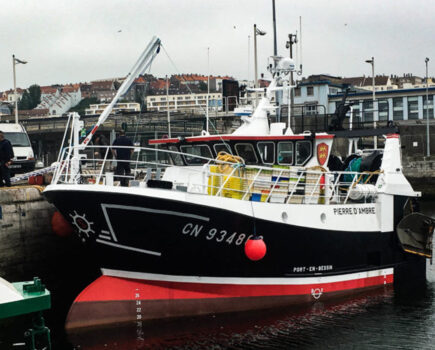Seafish fleet researcher Oscar Wilkie reports from Wales…
I have recently spent two weeks in Wales conducting Seafish’s annual fleet survey, speaking confidentially with vessel owners about their businesses.
More or less throughout Wales – and the rest of the UK for that matter – whelks are a vital part of inshore fisheries. They provide an income to numerous families, and ensure that fishing effort is spread so that other stocks, such as lobster, are less likely to be overexploited.
The one thing that seems to unite all whelk fishermen is that they don’t eat whelks. Having tried them myself, I can see why!
Only a very small percentage of whelks – the biggest sea snail occurring off our shores – are sold in the UK. The majority go to South Korea and China. The fishery has taken off throughout the UK in recent years, in response to the growing demand from the Far East. The fishery also has comparatively low entry costs, as pots can be made at home, or bought far cheaper than most other gears.
The growth of the fishery has been rapid. The volume of whelks landed in the UK increased sixfold between 2010 and 2013, while the price fishers get for them has also increased. In many areas there is little management aside from the minimum landing size, which can differ between IFCAs, and pot limits in some localities. However, with annual increases in the number of vessels fishing whelks, a few concerns have been voiced around the sustainability of the fishery.
To that end, in 2020 the Whelk Management Group (WMG) was formed. It brings together stakeholders from across the seafood supply chain, regulators and the research community to focus on the management of UK whelk fisheries. The group includes whelk fishers, processors and traders, as well as academics, producer organisations, government representatives and fishermen’s associations, and is facilitated by Seafish.
The WMG aims to improve understanding of whelk fisheries and the tools used to manage them. It is currently inviting whelk fishers to share their knowledge of their local whelk populations as part of a study to understand local variations in populations. You can contact Lewis Tattersall at: lewis. tattersall@seafish.co.uk or on: 07970 154238 to find out more.
It’s hoped that this knowledge from fishermen can help to inform further research, and ultimately ensure that whelk stocks are sustainable in the long term. That would be good news for the many fishing businesses they support.
Oscar is a fleet researcher with Seafish, working on the 2021 fleet survey, which is taking place now. If you are happy to take part, please email: fleet.survey@seafish.co.uk with your name, email and/or phone number and port of operation.
Find out more here or read more 2021 Seafish Fleet Researcher Diaries here.
This story was taken from the latest issue of Fishing News. For more up-to-date and in-depth reports on the UK and Irish commercial fishing sector, subscribe to Fishing News here or buy the latest single issue for just £3.30 here.








